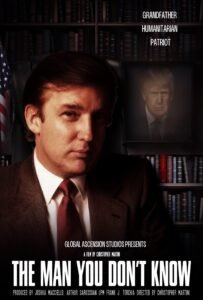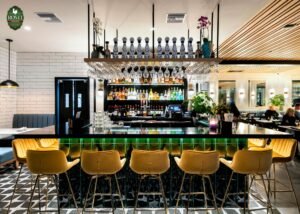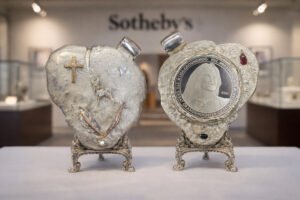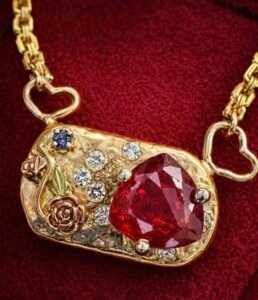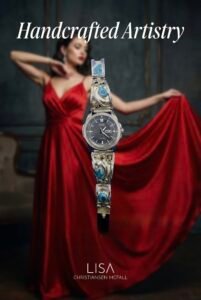Unveiling the 9th Woman Life Freedom Mural in Israel: A Divine Symphony in Tel Aviv
In the aftermath of the October 7 attack by Hamas on Israel, numerous prominent figures have journeyed to Israel to observe the aftermath. This includes foreign dignitaries, business leaders, and celebrities who have toured damaged kibbutzim, met with hostage families, and joined the country’s extensive volunteer initiatives.
A multitude of actors, comedians, music executives, and social media personalities, both Jewish and non-Jewish, have made trips to Israel. They are sharing their experiences with millions of fans and followers on platforms like Instagram and TikTok. Some names include Debra Messing, Jerry Seinfeld and many more. But that’s not all the influencers that have been making a change.
In a harmonious dance of artistry and advocacy, Hooman Khalili, the dedicated Persian filmmaker, quietly unveils the 9th Woman Life Freedom Mural in Tel Aviv. This heartfelt homage stands as a testament to the unwavering spirit of Iranian women in their quest for freedom. A revelation of divine inspiration, this artistic marvel graces Israel’s cultural landscape, weaving a silent narrative that effortlessly transcends borders.
Just last week, Khalili mesmerized audiences in Jerusalem, unveiling his 8th mural at the esteemed Museum of Tolerance.
This powerful testament to unity featured two formidable women, one Persian Jewish and the other Kurdish Persian, standing shoulder to shoulder. Khalili, the maestro of poignant murals, expressed profound gratitude, acknowledging the divine miracle that allowed this mural to grace one of the most prominent spots in Jerusalem.
Simultaneously, as #8 was making its grand debut, a clandestine revelation occurred in the background. Unbeknownst to many, a mere eight hours before his departure, Khalili unveiled the 9th mural in Tel Aviv, shrouded in an air of artistic secrecy.
This intimate unveiling, attended by a select few, including Israeli graffiti artist Benzi Broffman, Dan Oryan from the Ministry of Foreign Affairs, journalist Emily Schrader, two of Shirel’s brothers Barak and Lior, and another Persian Jewish humanitarian, Orly Cohan, marked a moment of profound connection between the artist and his audience. Broffman’s spray paint on the uneven surface echoed stories of resilience, resonating through the narrow streets of Tel Aviv.
The 9th mural, a collaborative masterpiece with Broffman, serves as a poignant tribute to the young girls in Iran ensnared in the web of oppression. Khalili sheds light on the nefarious practice employed by the Islamic regime, locking doors at all-girl schools and filling rooms with poisonous gas. Through his art, Khalili extends a symbolic hand to these young souls, inviting the world to bear witness to their silent struggles.
Strategically placed on the same wall as the 5th mural dedicated to Mahsa Amini, the 9th mural seamlessly intertwines with its predecessor, creating a harmonious narrative of strength and resistance. Four carefully chosen Bible verses, prominently displayed, infuse the murals with profound spiritual significance. Proverbs 31:25, “She is clothed with strength and dignity and she laughs at the days to come,” serves as a testament to the enduring strength of women.
Isaiah 22:22, “The key to the house of David,” casts a divine light on the murals, symbolizing the unlocking of doors to a brighter future. Jeremiah 49:38, “God’s throne will be in Elam,” connects the art to the rich biblical history of Persia, invoking not only the spirit of Esther but also a reminder that God will have a second throne on this earth, and it will be in Iran.
Esther 4:14, placed next to Shirel and the most famous verse in the book of Esther, serves as a poignant reminder of divine calling — “For if you remain silent at this time, relief and deliverance for the Jews will arise from another place, but you and your father’s family will perish. And who knows but that you have come to your royal position for such a time as this?” Khalili passionately states, “The idea of these murals is to inspire the Iranian women to keep fighting. This is the first time in the history of the world you have a women-led revolution. How better than to show them a Persian Jewish woman, a modern-day Esther who ran into the battle to defend her country and her people. As a Persian Christian, I believe our lives are not our own; we belong to the Lord, and when God calls, you must GO! For Shirel, God called her into the battle; she was chosen to defend Israel in such a time as this.”
Khalili, a devoted Persian Christian, weaves these verses into his murals as a testament to his belief that art is a divine calling. With nine murals completed and nine more to go, Khalili envisions fulfilling his goal of 18 murals in Israel by Purim of 2024. In each stroke of his paintbrush, he echoes a message to the world — Israel is the beacon standing alongside the freedom-fighting women of Iran.
As this artistic odyssey unfolds, Khalili’s murals stand not only as visual narratives but as sacred whispers of hope, echoing across the landscapes of Jerusalem and Tel Aviv. In a world often filled with noise, these murals serve as a quiet reminder of the enduring power of art to unite, inspire, and speak to the depths of the human spirit.
Every time Khalili speaks, he reminds the world “that Israel is the only country in the Middle East standing with the freedom-fighting women of Iran. There are no murals in Afghanistan, or Syria, or Lebanon, or Saudi Arabia, or the UAE or Qatar. Thank you to Israel for being the only country in the Middle East standing alongside the freedom-fighting women of Iran. Israel and Iran will be friends again, and in our lifetime, we will see a free Iran and a stable Middle East.”
From your mouth to God’s ears.
From the quiet corners of Tel Aviv to the vibrant streets of Jerusalem, Khalili’s murals resonate with the divine, telling stories that intertwine the earthly and the spiritual, inviting all to witness the silent yet powerful revolution in the hearts of Iranian women.

